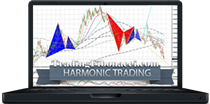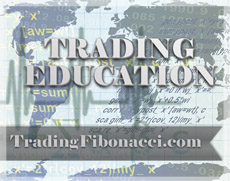(+) World Markets
Phillip Fisher once said: “The stock market is filled with individuals who know the price of everything, but the value of nothing.” This statement holds true—but is real value still what drives stock markets today? Since the introduction of the derivatives market in 1987, financial market dynamics have changed significantly. The dominance of derivatives has led markets to adopt a form of 'shorterism', focusing more on trading the news than on trading intrinsic value.
A smart investor must be both an investor and a trader. This means knowing when to trade based on news and when to trade based on real value. News trading is generally more effective in the short term, while value-based trading is more relevant for long-term investment.
Stock Indices
A stock market index is a statistical tool used to monitor the performance of a selected group of stocks that represent a particular market, sector, or investment strategy. By consolidating the performance of individual stocks into a single numerical value, an index offers a concise snapshot of market sentiment and overall economic conditions.
🔍 Core Functions of Stock Market Indices:
-
Performance Benchmarking
Serves as a standard for investors to evaluate how their portfolios perform relative to the broader market.
-
Economic Barometer
Acts as a real-time indicator of economic momentum—rising indices often reflect growing investor confidence and economic expansion.
-
Foundation for Passive Investing
Forms the basis for index-tracking investment vehicles such as exchange-traded funds (ETFs) and mutual funds.
Forex Trading Tips
Here are seven essential tips to trade the Foreign Exchange market effectively.
TIP (1): Understand What You Are Trading
First and foremost, you must understand what you are trading. Many investors mistakenly assume that trading Forex currencies is similar to trading stocks or indices. This is completely incorrect. Trading Forex is fundamentally different from trading in any other financial market. The Forex market operates 24 hours a day, five days a week, with immense liquidity, ultra-tight spreads, and near-perfect information. This unique combination creates an optimal environment for competitive trading.
Forex is the Most Competitive Market Worldwide
The Forex market is the most competitive financial market globally, and for good reason:
-
Millions of real currency buyers and sellers participate daily (including banks, importers/exporters, and tourists).
-
Millions of active Forex traders, many of whom trade full-time, contribute approximately 95% of total market volume.
-
Thousands of arbitrageurs operate daily, further enhancing market liquidity.
-
Hundreds of retail and institutional Forex brokers exist, including NDD (Non-Dealing Desk) and DD (Dealing Desk) models.
-
The total daily market volume exceeds 4 trillion US dollars.
-
The market benefits from near-perfect, real-time information availability.
-
Major currency pairs (EURUSD, USDJPY, GBPUSD, USDCHF) offer extremely tight spreads, making them cheaper to trade than any other financial instruments.
Read More: » The Foreign Exchange Market and History

Introduction to Commodity Trading
What is a Commodity?
A commodity is a raw material used to produce a final product. It can be a metal, an agricultural product, or an energy resource. These goods are standardized, meaning each unit of a particular commodity—like a barrel of oil, an ounce of gold, or a bushel of wheat—is uniform in quality and specifications regardless of its origin. Commodities typically meet three key criteria:
-
Tradability
-
Deliverability
-
Liquidity
Key Features of Commodities:
-
Standardization: Commodities are traded in consistent grades and quantities, such as “Brent Crude Oil” or “No. 2 Yellow Corn.”
-
Fungibility: One unit of a commodity is interchangeable with another of the same type, so gold from one mine holds the same value as gold from another.
-
Physical Asset: Unlike stocks or currencies, commodities are tangible products derived from natural resources.
-
Bulk Trading: Commodity transactions usually involve large volumes, for example, thousands of barrels of oil or bushels of soybeans.
What Affects Commodity Prices?
Several factors can affect commodity prices, such as weather conditions or major shifts in the macroeconomic environment.
-
Supply: Weather conditions, mining output, geopolitical stability, and storage capacity.
-
Demand: Economic growth, industrial use, and population trends.
-
Currency Movements: Since commodities are priced in U.S. dollars, a stronger dollar usually leads to lower commodity prices.
-
Macro Trends: Transition to green energy, trade policies, tariffs, and related developments.
Introduction to The Foreign Exchange Market
The Foreign Exchange Market (Forex) is a global, decentralized financial market where currencies are traded against one another. It is the largest financial market in the world, with daily trading volumes exceeding $5 trillion.
What is the Forex Market?
Forex, short for FOReign EXchange, is a global marketplace where currencies are traded in pairs (e.g., EUR/USD, USD/JPY). Unlike centralized exchanges, the Forex market operates without a specific physical location or central hub, functioning much like the internet. Forex transactions are executed via an Electronic Network of Banks (ECN), either through phone or the internet.
Currencies in the Forex market are traded in pairs and are classified as Majors, Minors, or Exotic pairs. The Forex market is known for its vast size and high liquidity, with a daily turnover estimated at more than $4 trillion.
Forex Market Participants
Participants in the Forex market include:
-
Banks (central, retail, and investment banks)
-
Retail and institutional investors
-
Day-trading speculators
-
International and national companies
-
Forex brokers (ECN, STP, and Dealing Desk brokers)
The Forex market functions similarly to the World Wide Web in that it is decentralized and accessible to anyone with a computer terminal and basic requirements. Trading is conducted electronically over-the-counter (OTC), meaning trades occur directly between buyers and sellers through computer networks. The market is open 24 hours a day, five days a week, with major trading centers in New York, London, Zurich, Tokyo, Frankfurt, Paris, Hong Kong, Sydney, and Singapore. As one market closes, another opens, ensuring continuous trading around the globe.
Fibonacci Trading

Uncovering the hidden proportions underlying market behavior...
🎯 Explore Fibonacci trading tools and tutorials:
» Combining Fibonacci with S&R
» Combining Fibonacci with TAs
» MT4 MT5 Fibonacci Indicators
📌 Discover the Advice from Market Gurus:
📖 eBOOK: TRADING WORLD MARKETS USING PHI AND THE FIBONACCI NUMBERS {by G. Protonotarios}
A Guide to Fibonacci Trading with Insights from Elliott Waves, Gann Numbers, and Harmonic Patterns..
► ePub at Amazon | ► PDF Version
Online Forex Brokers
Compare Online Brokers for International Traders: » Compare ECN/STP Brokers
Trading Education
2025 Holidays
 |
|
| Date | Holiday |
| Jan. 1, Wednesday, | New Year’s Day |
| Jan. 20, Monday | Martin Luther King |
| Feb. 17, Monday | Presidents' Day |
| April 18, Friday | Good Friday |
| May 26, Monday | Memorial Day |
| June 19, Thursday, | Juneteenth Day |
| July 4, Friday | Independence Day |
| Sept. 1, Monday | Labor Day |
| Nov. 27, Thursday | Thanksgiving Day |
| Dec. 25, Thursday | Christmas Day |
Chart Patterns

📊 Identify and Trade High-Probability Chart Patterns:
» Time Frames and Trading Styles

📈 Engaging in Global Market Trading




